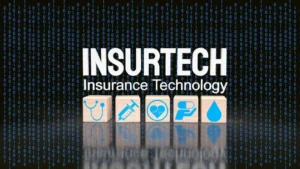From time immemorial, home insurance has served as the financial shield for homeowners protecting them from sudden shocks from fires, thefts, and even water damage. Traditional insurance models, however, use a “wait for damage to occur” reactive strategy. The inclusion of smart home technology mitigates the damage before it occurs. Smart devices such as security cameras, leak detectors, and AI sensors protect homeowners from filing expensive claims while giving insurers a better assessment of risk.
These innovations further add to the safety and convenience of the home while also minimizing financial losses. With further smart technology integration in insurance, policyholders are set to enjoy lower premiums along with streamlined claims processes. In this article, we will discuss the impact of smart home devices in the future of home insurance policies through claims mitigation, risk reduction, and enhanced home protection.
How Smart Devices are Changing Home Insurance for the Better:
Smart technology’s interface with home insurance is transforming the industry docus on prevention instead of reaction. Compensatory insurance policies focus on covering damage after it occurs, but now, smart home devices enable real-time monitoring and alerts which help prevent incidents. Devices such as motion-sensing security systems and water leak detectors allow homeowners to reduce damage before it becomes a costly insurance claim.
Insurance providers are adopting new strategies by offering discounts to policyholders with smart home devices. With data from various connected devices, insurers can assess risks and design policies based on individual homeowners. A home with smart security is less likely to suffer a break-in and thus, can enjoy lower insurance premiums. The same goes for fire smart detectors that instantaneously alert homeowners and emergency responders. They help minimize damage, and thus, reduce overall claims. This shift is beneficial for both parties as homeowners and insurers save on living expenses and insurance costs.
Role of Intelligent Security Systems In Preventing Insurance Claims:
A home’s security system goes beyond a mere alarm system. Today’s advanced smart security features like video doorbells, motion detectors, and AI cameras help to prevent break-ins and minimize theft-related insurance claims. These systems notify homeowners and police in real-time, enabling them to stop trespassers at the property lines.
Most insurers offer discounts on premiums because these devices are beneficial for claim prevention. The mere presence of security cameras and alarm systems reduces the chances of a break-in because most criminals look for easy targets. Some advanced systems that use AI can tell the difference between people doing mundane activities and those planning attacks, enabling them to reduce false alarms. Modern locking mechanisms or smart locks also let homeowners manage access to their homes even when they are not there.
Smart security systems are a boon for both policyholders and insurance companies because they reduce the chances of theft and burglary claims. The financial burden due to property theft and subsequent home repairs is significantly alleviated, making the insurance process smoother and cheaper. As technology advances, security systems will become smarter and even more effective at securing homes.
How Smart Sensors Mitigate Water Damage Claims:
Home water damage insurance claims are most commonly caused by malfunctioning appliances, broken pipes, or persistent leaks. Traditional methods of water leak detection rely on homeowners to identify the problem after the damage has been dealt with. Smart water sensors completely transform this by offering automatic alerts and early leak detection.
Smart water leak detectors are placed strategically in areas like under sinks, around water heaters, and near washing machines. These devices are designed to detect the presence of moisture and send real-time alerts to homeowners so that they can take action before a small leak becomes an even bigger problem. Some advanced systems are capable of automatically turning off the water supply when a leak is detected to mitigate damage even further.
To encourage the fitting of these sensors, insurance companies are now offering policy discounts or rewards to homeowners. Insurers reduce their costs by saving on water damage claims, and homeowners, in turn, do not have to face expensive repairs or insurance deductibles. This effort works toward protecting the home’s construction and provides enduring savings for everyone involved.
Contribution of Smart Fire Detectors Toward Protecting Homes:
Fire damage can have tremendous consequences, as it can result in cost-intensive reparations, destruction, and even death. Basic smoke detectors can warn about fires to a certain level, but homes are protected using advanced fire detection systems. These structures are connected to mobile devices and home automation systems which means that when smoke or carbon dioxide is detected, alerts are immediately sent out to the homeowner and emergency services.
While traditional smoke detectors give out loud alarms, smart detectors offer real-time notifications to homeowners when they are not home. This helps ensure faster response times, which can keep fire damage to a minimum. Some models even have AI-powered sensors that study smoke patterns and identify the type of fire that is burning, meaning more accurate detection while fewer false alarms are set off.
Insurance companies offer discounts to homeowners with advanced fire detection systems. This indicates that they understand the benefits of the systems. Early fire detection translates to less damage, fewer claims, and decreased costs for insurers and policyholders. With the evolution of smart technology, fire safety systems will become more advanced, which will further decrease fire-related insurance claims.
Emerging Trends Of Fire Smart Technology In Home Insurance:
The home insurance sector is changing alongside the innovations associated with smart technology to improve risk evaluation and claims mitigation, which further enhances loss control. One of the developments is the implementation of AI and machine learning into policy underwriting. AI analytics are capable of analyzing streams of data from smart home devices in real-time, spotting risks, and anticipating maintenance activities before issues arise.
Claims management and data protection using blockchain technology is another emerging trend. Blockchain technology can offer unalterable and open records of every piece of data captured by smart devices. This guarantees that insurance claims will be settled honestly. This innovation strengthens the relationship between insurers and policyholders by removing disputes regarding claim validity.
The increase in popularity of usage-based insurance (UBI) is also impacting the structure of home insurance policies. Rather than having a standard fixed premium, a smart home device offering real-time pricing adjustments would make home insurance more attractive to homeowners. Further savings could be offered to those homeowners who actively manage their homes and take measures to prevent the use of insurance services.
Along with these advances. Privacy issues remain a major concern. Homeowners might be concerned about how their data is utilized and whether insurers may access sensitive information about them. Insurance companies, for example, should develop procedures that make it possible with straightforward information policies concerning data possibilities.
Conclusion:
Smart technology is transforming the edge of home insurance making it proactive instead of responding to damages after the fact. With smart security, water leak stenches, and fire alarms, homeowners can avert common household incidents thereby reducing claims made to the insurers which, in turn, helps homeowners. Insurers are starting to see the value these technologies offer (aid), therefore, giving cheaper premiums and tailoring policies to clients’ needs. AI, blockchain, and the IoT will aid in further heightening efficiency and cost-effectiveness fundamentally altering home insurance. Although, insurers need to address the issues of privacy and data control concerning homeowners’ information. Smart devices will fundamentally aid in enhancing the protection of and aiding in creating desirable insurance options.
FAQs:
1. In what ways do smart devices for the home aid in reducing insurance payments?
Smart devices mitigate risks by identifying water leaks, fires, or break-ins long before they escalate. Because these devices reduce the likelihood of expensive claims, insurers provide discounts to the homeowners who install them.
2. Do smart devices need to be integrated for coverage to be provided by insurance companies?
Not necessarily, however, some insurers incentivize smart devices by offering discounts and other benefits. There may be other policies that cater to additional benefits for homes equipped with preventive technology.
3. Are smart security systems capable of eliminating the possibility of home intrusions?
Smart security devices can never guarantee complete security. However, they greatly decrease the likelihood of break-ins due to criminal deterrents and swift actions from homeowners as well as law enforcement.
4. What if a smart device fails to avert harm?
With or without smart devices, accidents will always be part of the equation. Regardless, early alert smart devices afford homeowners the luxury of time to take necessary steps. Dangers, in this case, will always be covered by insurance policies but partial claims will be made due to losable damages.
5. Are there any privacy concerns when it comes to smart home insurance?
Undoubtedly, the use of data privacy remains a valid concern for some homeowners. Insurers are obliged to provide policies that govern how such information is utilized and offer clients the ability to dictate what data is deemed sharable.




